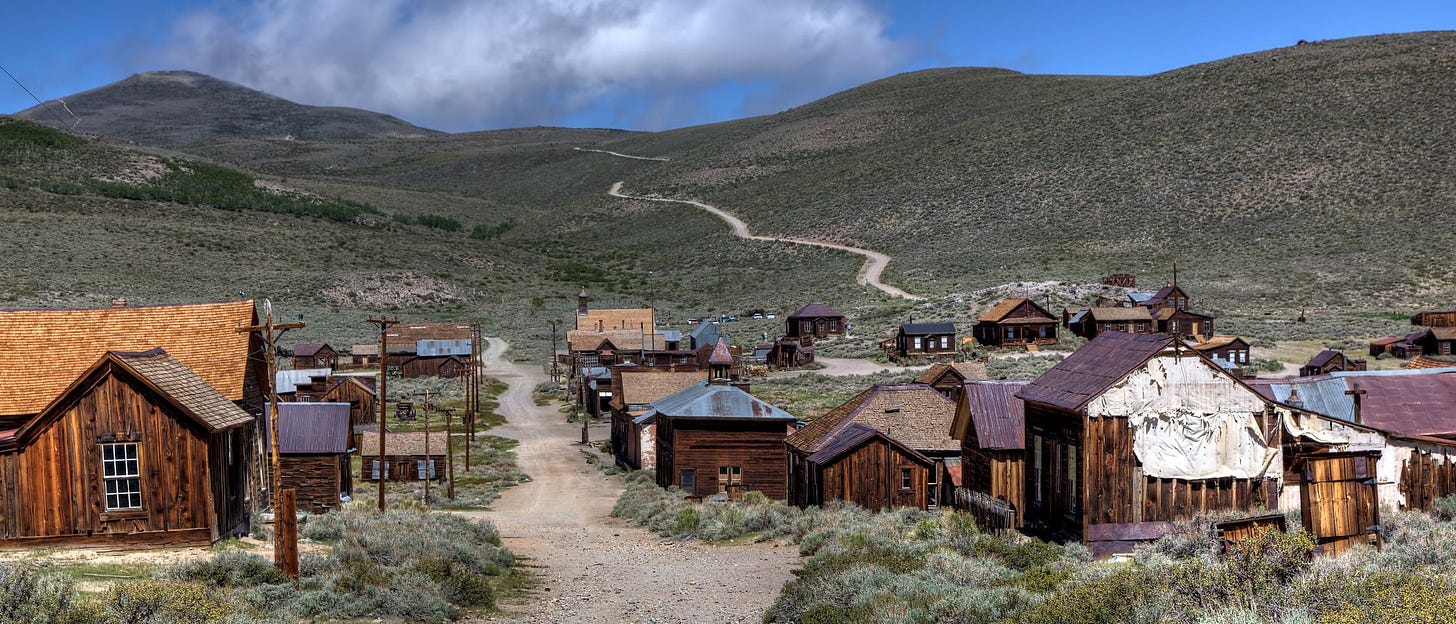Why online communities die
To thrive, communities need a clear purpose (#97)
Howdy.
Welcome to Stew’s Letter.
It’s been a while since the last email. The reason is simple: writing is hard and I am lazy.
This week’s email contains an insight I’ve been chewing on for a few years now. It’s inspired by Priya Parker’s book The Art of Gathering, my experiences at TED, and my time so far building Foster.
If you’re building a community, I hope you find it helpful.
Let’s get to it!
Why online communities die
“Here is the great paradox of gathering: There are so many good reasons for coming together that often we don’t know precisely why we are doing so.”
– Priya Parker, The Art of Gathering
I want to cry every time I check the online communities I joined this time last year. Most of them are now barren wastelands.
You probably know the scene: you joined a poppin' Slack or Discord a while back. It was LIT when you joined, but now it's not lit. Worse, it's a total ghost town.
A person without a profile photo floats around talking to themselves. The latest post in the #wins channel is 7 months old – and it has two pitiful thumbs-up reactions. The leader of the community is nowhere to be found. Even Slackbot doesn’t want to be there, glowing a reluctant green in a sea of grey offline statuses. "Save me," he seems to whisper...
The community has succumbed to Digital Darwinism.
Most of these communities started off with tons of potential, though. They had a well-intentioned, enthusiastic leader. The waitlist was overflowing with early believers. But amidst the hype, the leader and members never really figured out the most important thing.
Why should people keep coming back to this community?
In other words, what is our purpose?
A purpose is the primary value that members get by participating in the community. It's specific, not fuzzy.
AA’s purpose = get you sober.
CrossFit’s purpose = make you fit.
TED’s purpose = amplify important ideas.
But most communities never define their purpose; they only pick a category.
"We're a community of designers"
Designers are a category. A purpose is the super-specific reason the community gathers.
Designers could:
Mentor each other
Help each other find work
Invent new typography together
Give feedback on each other’s work
Lobby Congress to replace the English alphabet with Wingdings
If you try to do many things, you never get great at one important thing. Members starting asking why they're there. Momentum fizzles. The community dies off and is absorbed back into the broader Internet.
But imagine that same community with a clear purpose.
A member makes a request: "let's launch a book club!!"
If the community exists to help designers get higher-paid work, you'll know to pick books about design careers. Boom – your core utility isn't diluted, it's amplified.
The purpose becomes the organizing principle for how the community is run. It sets clear expectations for how members interact, which makes those interactions self-sustaining. It fends off random, disorganized, scattered interactions that dilute value.
It also makes it easier to onboard new members. Instead of being dropped into a bunch of random conversations, new members quickly know how to add value & connect with other people.
So yeah, I think tons of the now-dead communities I joined last year never really squared on their purpose. And so they died. Which makes me sad.
Thank you to my fellow Foster-ites Dan Hunt and Alice Lemee for their insight and help writing early drafts of this.
P.S. I originally published this on Twitter here.
Other Stew’s Letter Things
Rice Mountain Update: There’s no update on Rice Mountain, unfortunately. I have prioritized startup things lately. Apparently, building a startup takes up a lot of time? Who knew… I’ll share an update when I pick things back up.
Fire TikTok: Somebody give this man an Oscar.
Bonus TikTok: I’m grateful the days of VHS tapes are behind us as I feel virtually certain I could have made this mistake.
Until next time,
Stew


Loved the article Stew! Perhaps the Internet is turning us back into nomads and we should see online communities as inherently ephemeral gatherings.
Alternative hypothesis: even if there is a single purpose, often it is the size and structure of the community that determines if it is alive or dying. WoW Guilds should provide a template for this dynamic. http://www.ncbi.nlm.nih.gov/pubmed/18537499